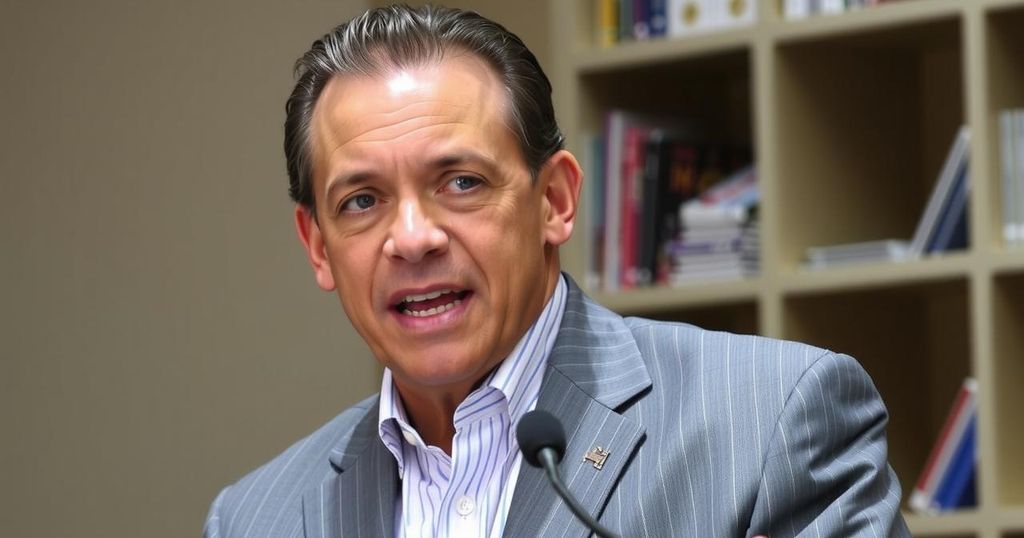Abandoning Elections: Pursuing Genuine Democracy in 2024
The article discusses the disillusionment with elections, particularly highlighted by the turmoil of the 2024 election year, advocating for a shift from reliance on elections toward empowering citizens through direct democratic processes. It critiques the divisive nature of elections that often strengthen autocracies and emphasizes the importance of grassroots initiatives for genuine governance.
As we embrace the new year, many individuals ponder resolutions centered around self-improvement, such as abstaining from alcohol or unhealthy snacks. I propose an alternative resolution: let us collectively abandon the futile pursuit of elections. Primarily, it is imperative that we reassess the expectation that elections will yield positive change within our communities and societies.
The events of 2024 underscored the stark divergence between democracy and elections; indeed, they are not synonymous. The year witnessed an unprecedented escalation in elections, with over four billion individuals across more than seventy nations participating. However, rather than inspiring democratic growth, these elections fortified autocratic regimes, incited violence, and incumbered governance, ultimately detracting from the essence of democracy itself.
Josh Lerner, co-executive director of People Powered, asserted, “Our obsession with elections is killing democracy.” With substantial financial resources devoted to electoral processes, public belief in elections as a mechanism for true representation has diminished. Voters, often deprived of genuine choices, confronted electoral manipulation and suppression, which characterized numerous contests across various nations.
Freedom House documented a troubling trend in 2024, identifying instances of violence in 26 of the monitored elections, alongside attempts by incumbents to jail or disqualify opponents. Direct threats to candidates emerged, ranging from violence against political figures in Mexico to ethnic clashes during elections in India. Moreover, the concept of a “sore winner,” wherein victorious parties consolidate power through intimidation or legal maneuverings, became increasingly prominent.
While some observers pointed to isolated successes, such as peaceful power transfers in Senegal and Botswana, the overarching narrative indicated a troubling reliance on divisive electoral practices rather than collaborative governance. Leonora Camner from Democracy Without Elections insists that “Elections are fundamentally disempowering,” highlighting the necessity for empowering democratic processes that enable citizens to govern themselves more effectively.
A paradigm shift involving grassroots democratic practices could significantly enhance civic engagement. Matt Leighninger presented an essential discourse on post-election reforms, proposing strategies such as citizens’ assemblies, participatory budgeting, and direct democracy initiatives, all of which aim to foster greater individual agency within governance.
The call for reinforced civic infrastructure, as suggested by Leighninger, could reinvigorate public trust and involvement. He further argued that the current iteration of democracy, overly reliant on voting as the primary method of participation, fails to resonate with the populace, leaving many feeling voiceless.
As we reflect on the challenges encountered during the Year of Elections, it is crucial to reconsider our commitment to electoral processes. Only by relinquishing our unwavering devotion to elections can we genuinely pursue a democratically empowered society, fostering collective governance and representation for the benefit of all citizens.
Joe Mathews is a columnist for Zocalo Public Square and founder-columnist for the planetary publication Democracy Local.
The article by Joe Mathews delves into the disillusionment surrounding electoral processes, particularly in light of the 2024 elections, which witnessed widespread violence and the entrenchment of autocratic regimes across numerous countries. It juxtaposes the concepts of democracy and elections, revealing how the latter can often undermine the former. Mathews explores insights from various experts who advocate for a shift towards more participatory forms of governance, emphasizing the need for community empowerment beyond traditional electoral frameworks.
In summary, the reflections on the challenges of the electoral year 2024 lead to a critical understanding that elections do not equate to democracy. As illustrated through various expert insights and documented instances of electoral manipulation and violence, society must pivot towards embracing a new paradigm focused on empowering citizens in governance. The ultimate goal should be to abandon the entrenched belief in the efficacy of elections in order to fortify a more robust, participatory democratic process.
Original Source: www.vcstar.com




Post Comment